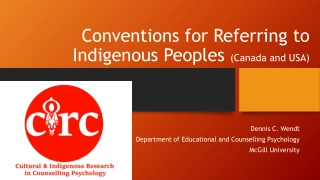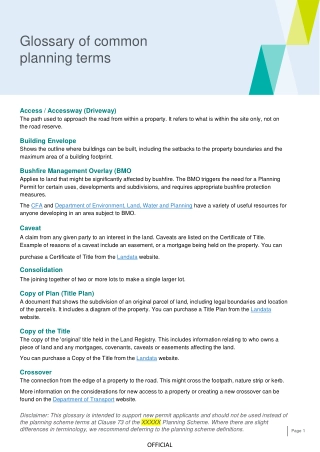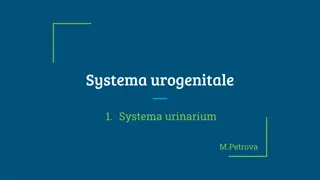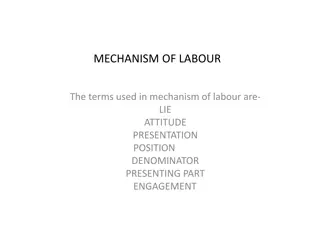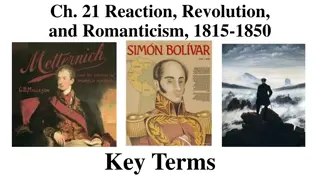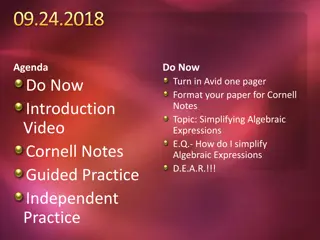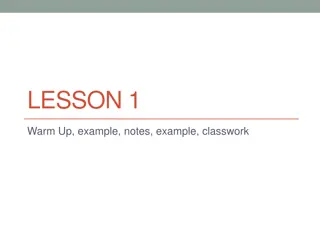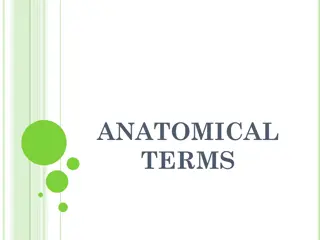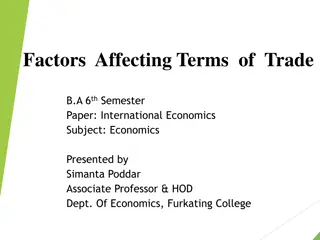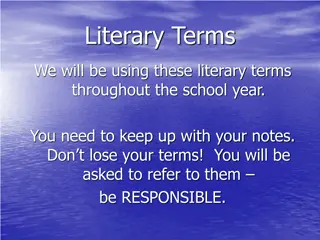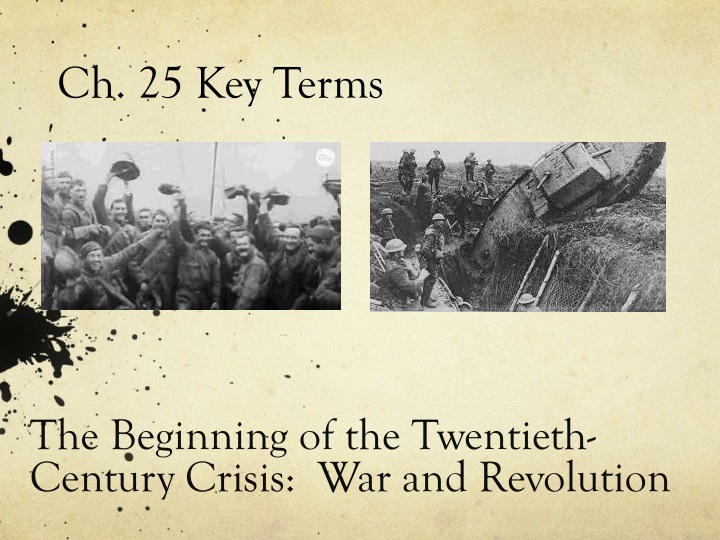
Twentieth Century Crisis: War and Revolution Key Terms
Explore key terms related to the early 20th century crisis of war and revolution, including conscription, militarism, mobilization, trench warfare, nationalization, soviets, Bolsheviks, war communism, genocide, and self-determination.
Uploaded on | 0 Views
Download Presentation

Please find below an Image/Link to download the presentation.
The content on the website is provided AS IS for your information and personal use only. It may not be sold, licensed, or shared on other websites without obtaining consent from the author. If you encounter any issues during the download, it is possible that the publisher has removed the file from their server.
You are allowed to download the files provided on this website for personal or commercial use, subject to the condition that they are used lawfully. All files are the property of their respective owners.
The content on the website is provided AS IS for your information and personal use only. It may not be sold, licensed, or shared on other websites without obtaining consent from the author.
E N D
Presentation Transcript
Ch. 25 Key Terms The Beginning of the Twentieth- Century Crisis: War and Revolution
conscription A military draft.
Militarism A policy of aggressive military preparedness, in particular, the large armies based on mass conscription and complex, inflexible plans for mobilization that most European nations had before World War I.
mobilization The organization of troops and supplies for service in time of war.
trench warfare Warfare in which the opposing forces attack and counterattack from a relatively permanent system of trenches protected by barbed wire; a characteristic of World War I.
nationalization The process of converting a business or industry from private ownership to government control and ownership.
soviets Council of workers and soldiers deputies formed throughout Russia in 1917 that played an important role in the Bolshevik Revolution.
Bolsheviks A small faction of the Russian Social Democratic Party who were led by Lenin and dedicated to violent revolution. They seized power in Russia in 1917 and were subsequently renamed Communists.
war communism Lenin s policy of nationalizing industrial and other facilities and requisitioning the peasants produce during the civil war in Russia.
genocide The deliberate extermination of a people.
self-determination The doctrine that the people of a given territory or a particular nationality should have the right to determine their own government and political future.
War Guilt Clause The clause in the Treaty of Versailles that declared that Germany (with Austria) was responsible for starting World War I and ordered Germany to pay reparations for the damage the Allies suffered as a result of the war.
reparations Payments made by a defeated nation after a war to compensate another nation for damage sustained as a result of the war; required from Germany after World War I.
mandates A system established after World War I whereby a nation officially administered a territory (mandate) on behalf of the League of Nations. Thus, France administered Lebanon and Syria as mandates, and Britain administered Iraq and Palestine.

